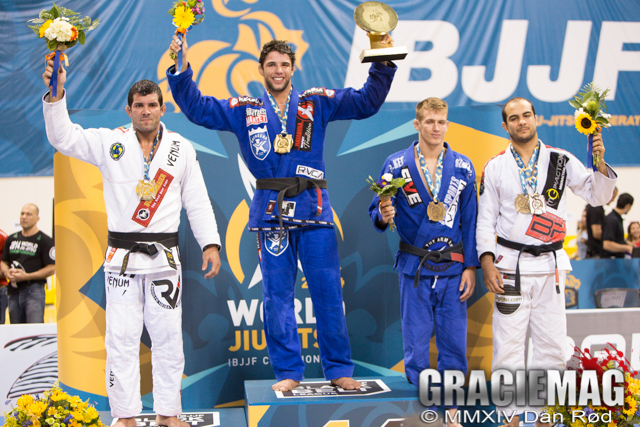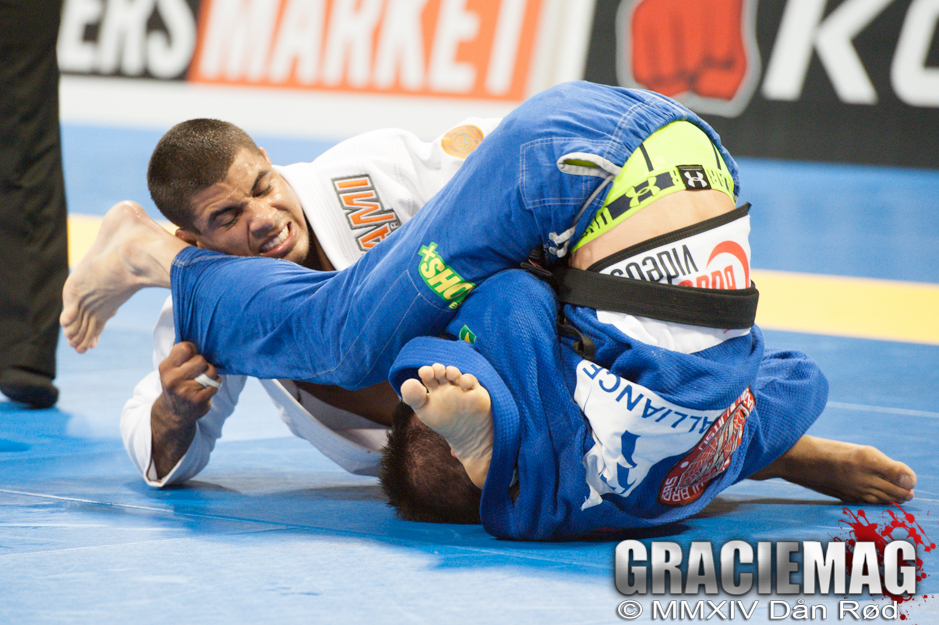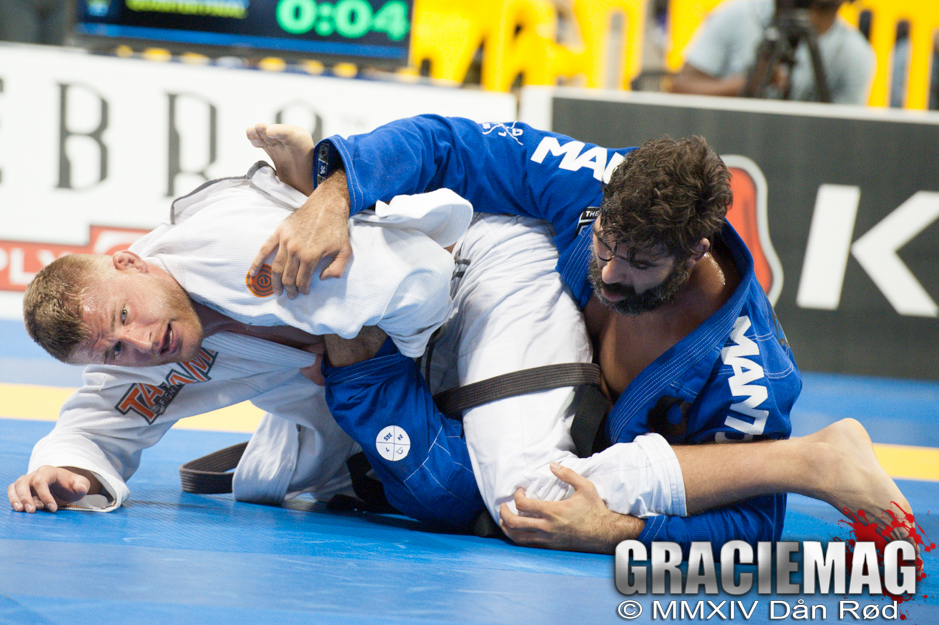
The 2014 Worlds open class podium with Keenan, the first American to place third in the division
Once again, all champions in the 2014 Worlds male black belt division came from Brazil.
Americans JT Torres (silver in lightweight), Keenan Cornelius (bronze in the open class), Rafael Lovato Jr (bronze in the heavyweight), Danish Alex Trans (silver in the ultra-heavy) and Ecuadorian Jorge Santistevan (bronze in the roosterweight) were the non-Brazilians that made to the podium.
In all history, only two times the gold medal of a male black belt division rested on the chest of guys not born in Brazil: in 2000 BJ Penn won the featherweight and in 2007 Rafael Lovato Jr won the ultra-heavy division.
Robert Drysdale, born in Provo, Utah, won in 2005, at the heavyweight division, but he is also a Brazilian citizen and earned his whole training in Jiu-Jitsu in Brazil.
More popular than ever all around the world, the spread of the gentle art is still to be translated into gold medal in the highest level, despite the number of black belts scattered throughout the globe.
GRACIEMAG went after two of the 2014 medalists to try to understand why Brazil still dominates the black belt division.

JT Torres during the battle against Langhi
JT Torres, who had a great campaign in the lightweight, beating two-time world champion Michael Langhi in the semifinal before being stopped by Lucas Lepri, says it’s not about numbers, but time.
“I don’t think it’s the quantity that matters, but the fact that Brazilians still have some what of a head start over other nationalities when it comes to the level of BJJ. Eventually over time I do believe the medal count will for sure be more balanced as other countries have more time to further develop the level in BJJ in their region.”
Alex Trans, who is the sitting European black belt open class champion, and who was stopped only by Marcus Buchecha in the ultra-heavy divison of the 2014 Worlds, also gave his opinion on the matter.

Trans in the quarterfinal against Abraham Marte
The Danish is direct in his approach: “It’s obviously happening because Brazilians are the best, and I think it’s going to take a long time before the other countries catch up. I think it’s just a question of the sport being very new, and Brazilians being way ahead, because the art was invented in Brazil, and it’s not that long ago that the art started spreading out in the World.”
Trans sees a bright light in the future, at least in the USA: “Maybe this new generation of fighters who are in their early teens now in the US are going to start catching up slowly in like 10 years, as the level of Jiu-Jitsu there is getting higher every year, especially because a lot of the top guys from Brazil who moved there to train and teach. But in Europe it’s going to take longer, maybe if the sport becomes more professional so it makes sense for the countries to invest in the sport, like you see in wrestling and judo. But if the sport keeps growing then I’m sure it will be more balanced at some point for sure, I don’t think the Brazilians are winning because they have better genetics, but simply because they have more and better training partners and instructors.”
The post 2014 medalists JT Torres and Alex Trans analyze why Brazil still dominates the male black belt division at the Worlds first appeared on Graciemag.
